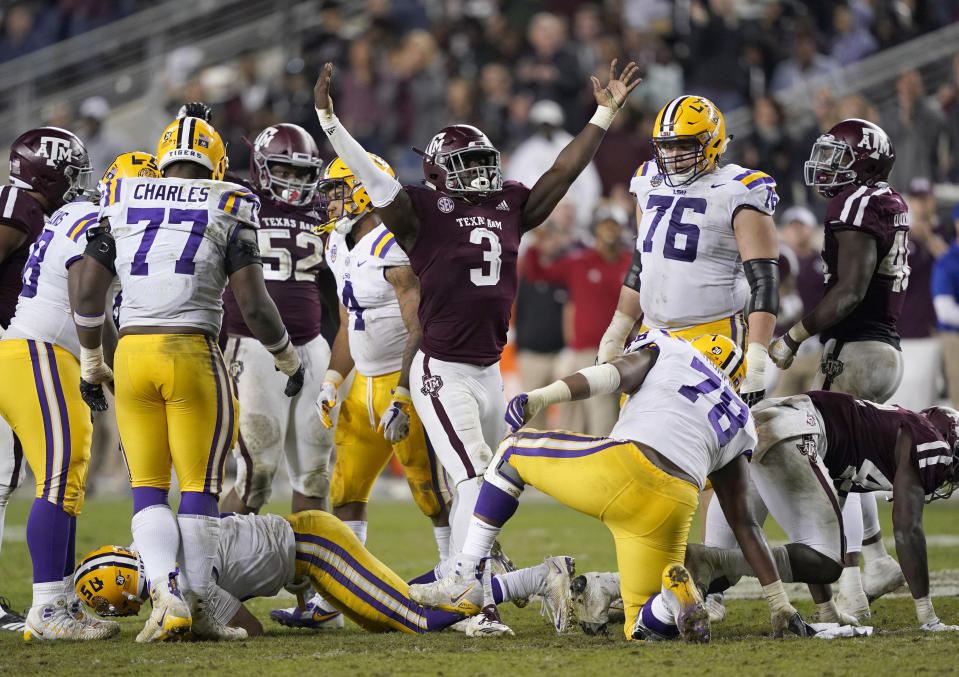NCAA approves new college football rules, including change to overtime

A few changes are coming to college football, including the way overtime is played.
The NCAA Playing Rules Oversight Panel approved a tweak to college football’s overtime rules. Moving forward, if a game advances to a fifth overtime, the teams will run alternating two-point plays instead of regaining possession from the 25-yard line like in prior overtime periods.
The NCAA already requires teams to attempt a 2-point conversion (instead of an extra point) starting in the third overtime. Think of this new change as college football’s version of penalty kicks.
The new rule, the NCAA says, was passed in an effort to “limit the number of plays from scrimmage and bring the game to a conclusion.” As part of the change, the NCAA is instituting two-minute rest periods after the second and fourth overtimes.
The change comes after last year’s epic LSU vs. Texas A&M game that went to seven overtimes. A&M won the game 74-72 in one of the longest games in FBS history.
A change to targeting rules
In addition to the overtime tweak, the panel approved two changes to the controversial targeting rules.
Starting with the upcoming season, penalties for targeting will either be confirmed or overturned. There will be no more plays where a call on the field “stands” like in a situation where a replay review is ultimately inconclusive.
In the past, if instant replay officials could not conclusively state that targeting occurred, a play ruled targeting on the field would “stand” and the player would be ejected. Only targeting fouls confirmed by replay will be upheld. The update to the rule removes the middle ground.
“If any element of targeting cannot be confirmed, the replay official will overturn the targeting foul,” the NCAA said.
Additionally, the panel ruled that players who accrue three targeting penalties in the same season will face a one-game suspension. Players already receive ejections for targeting and are suspended for the first half of the following game if the targeting foul occurs in the second half.
Other rule changes
Two other rule changes passed on Monday.
First, the NCAA has essentially eliminated the blind-side block. Any block deemed to be a blind-side block “attacking an opponent with forcible contact” will be a 15-yard personal foul penalty. If the block “includes the elements of targeting,” targeting rules will be enforced.
Finally, the NCAA voted to eliminate the two-man wedge formation on kickoffs.
Last year, the same NCAA rules panel made big changes to the kickoff, allowing players to call for a fair catch inside the 25-yard line in a move that would start the ensuing drive from the 25 like a touchback. The change was made in the spirit of player safety. The kickoff is one of the game’s most dangerous plays.
More from Yahoo Sports:

 Yahoo Sports
Yahoo Sports 